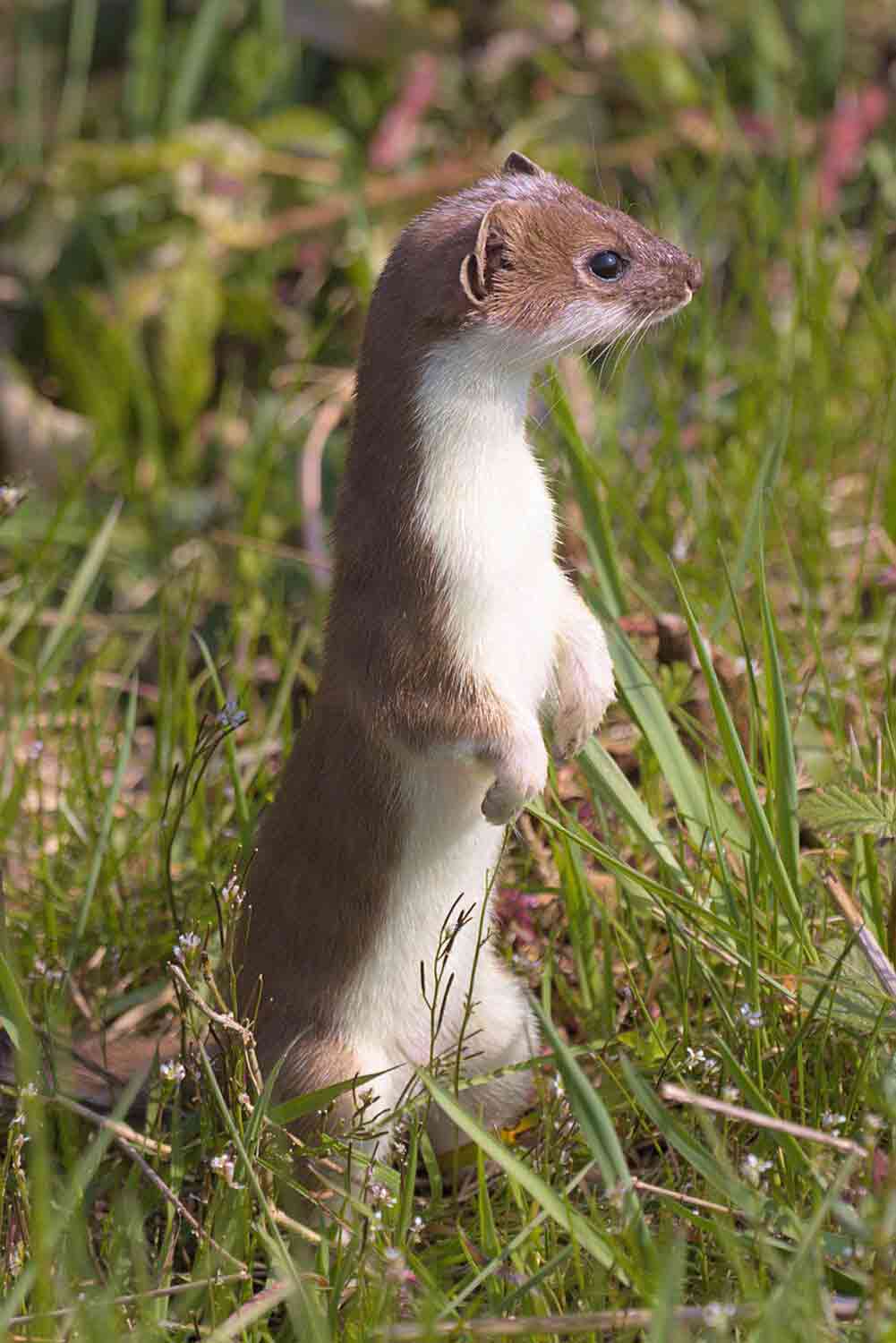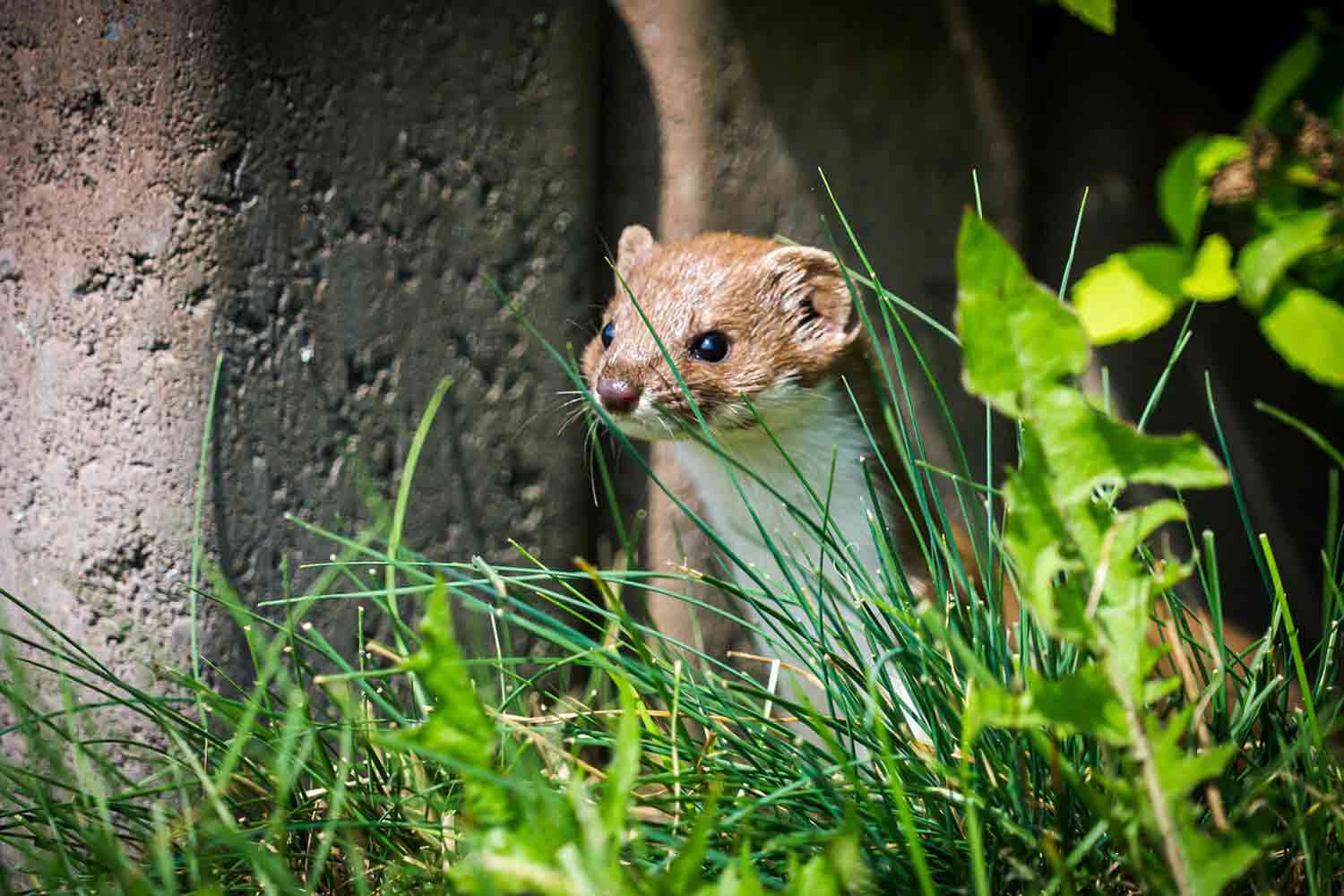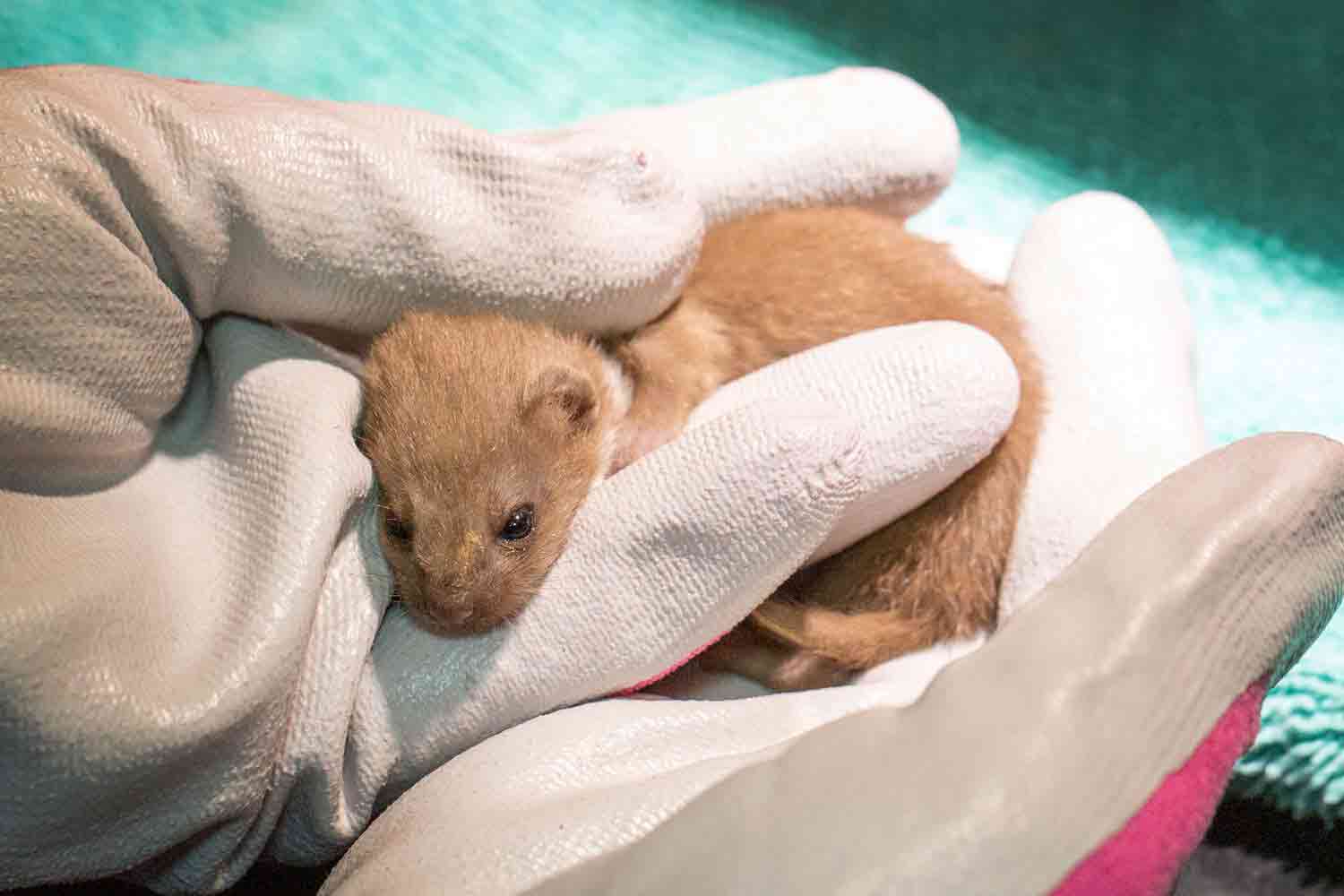Weasel
Mustela nivalis
Life History
Length: 15-25 cm, with males typically larger than females.
Weight: 40 – 195g
Diet: Primarily small mammals, especially voles and mice, but they will also eat birds, frogs, eggs, and insects when available.
Average Lifespan: 1 – 2 years
When to see them: Year-round, most active at dawn and dusk.
UK population: est. 450 000 in Britain
UK conservation status: Common

About
Weasels are small, agile carnivores found throughout the UK, occupying various habitats such as woodlands, grasslands, and farmland. Known for their slender bodies, weasels are adept hunters, specializing in taking down prey even larger than themselves. Their remarkable hunting skills help control populations of small mammals like voles and mice, playing an essential role in balancing local ecosystems.
Weasels are solitary and fiercely territorial, patrolling their home ranges regularly and marking them with scent glands. Their slender bodies allow them to pursue prey into burrows and tight spaces. Known for their high-energy needs, weasels often hunt daily, capturing prey to store in their dens for later. They are primarily crepuscular, being active at dawn and dusk, and exhibit rapid, bounding movements when in pursuit of prey.
Their Threats
- Habitat Loss: Agricultural intensification and urban expansion reduce suitable hunting grounds and shelter for weasels.
- Poisoning: Rodenticides can indirectly harm weasels if they consume poisoned prey.
- Predators: Larger predators, such as foxes and birds of prey, can pose a threat to young or vulnerable weasels.


How you can help
There are a number of simple ways you can help weasels:
- Create a Wildlife-Friendly Garden: Providing shelter through log piles or dense shrubbery can offer weasels a safe space.
- Avoid Rodenticides: Using natural pest control in gardens and outbuildings helps prevent accidental harm to weasels.
- Drive Carefully: Weasels may cross roads in pursuit of prey; slowing down near countryside areas can help reduce road mortality.
Frequently Asked Questions
What should I do if I find a weasel in my garden?
If a weasel is visiting your garden, enjoy the moment—they’re excellent at controlling pests naturally! Simply watch from a distance and avoid handling it.
I found an injured weasel, what should I do?
Young weasels face many threats as they learn to navigate their surroundings, with predators such as birds of prey and cats posing significant risks. Injuries from these encounters can lead to open wounds that quickly become infected, making it essential for an injured stoat or weasel to receive prompt care to prevent complications. In these cases, you should contact your local wildlife rehabilitation center or vet as soon as possible.
Our emergency helpline is 01372 360404.
How to pick up the weasel or the stoat and what to do afterwards?
To safely handle a young weasel or stoat, especially if their eyes are still closed, it’s essential to be very gentle as they are fragile and may not bite yet. Wrapping them in a soft material like a sock, towel, or blanket can help keep them secure and comfortable when lifting them into a sturdy box.
For older or more active animals, it’s best to use thick gardening gloves for protection, as their bites can be surprisingly strong. Alternatively, carefully covering them with a towel can provide enough support while transferring them into a container. Since weasels and stoats are natural escape artists, ensure the box is thoroughly escape-proof. Keeping them warm is critical, particularly for younger animals that struggle to regulate their body temperature. If you need to add a heat source, use only warm—not hot—water in a bottle, and make sure the box has plenty of ventilation to prevent overheating.
Our emergency helpline is 01372 360404.
How can I tell the difference between a weasel and a stoat?
Weasels are smaller, with no black tip on the tail, unlike stoats which have a distinctive black tail tip.